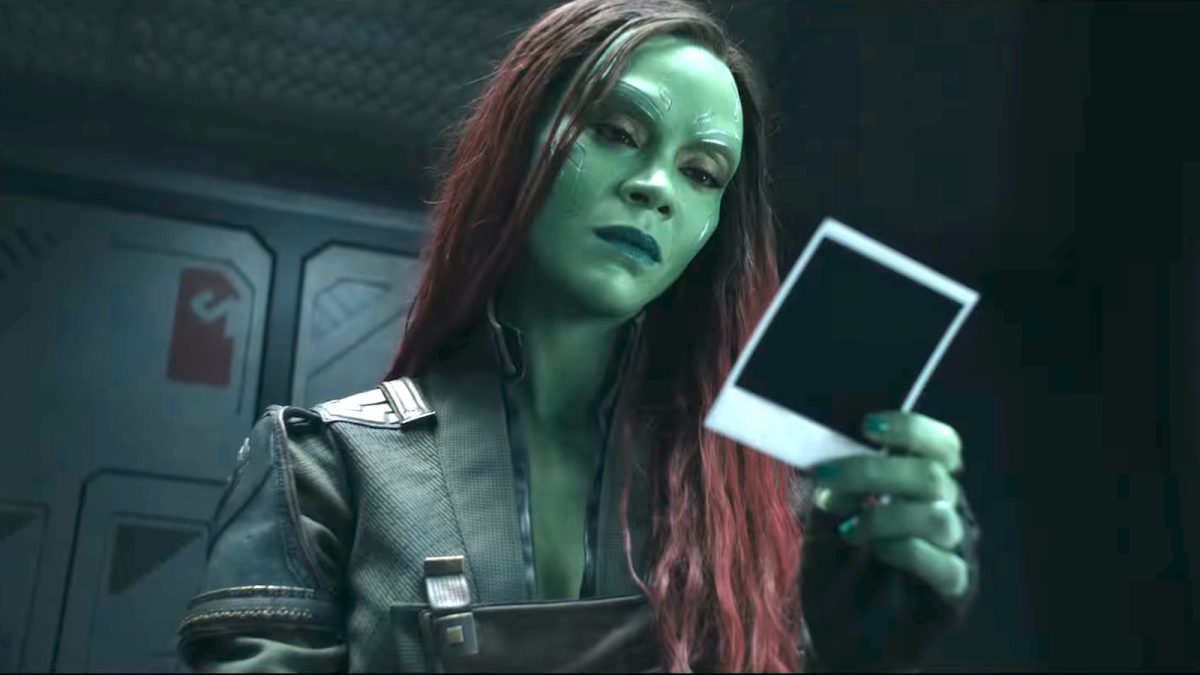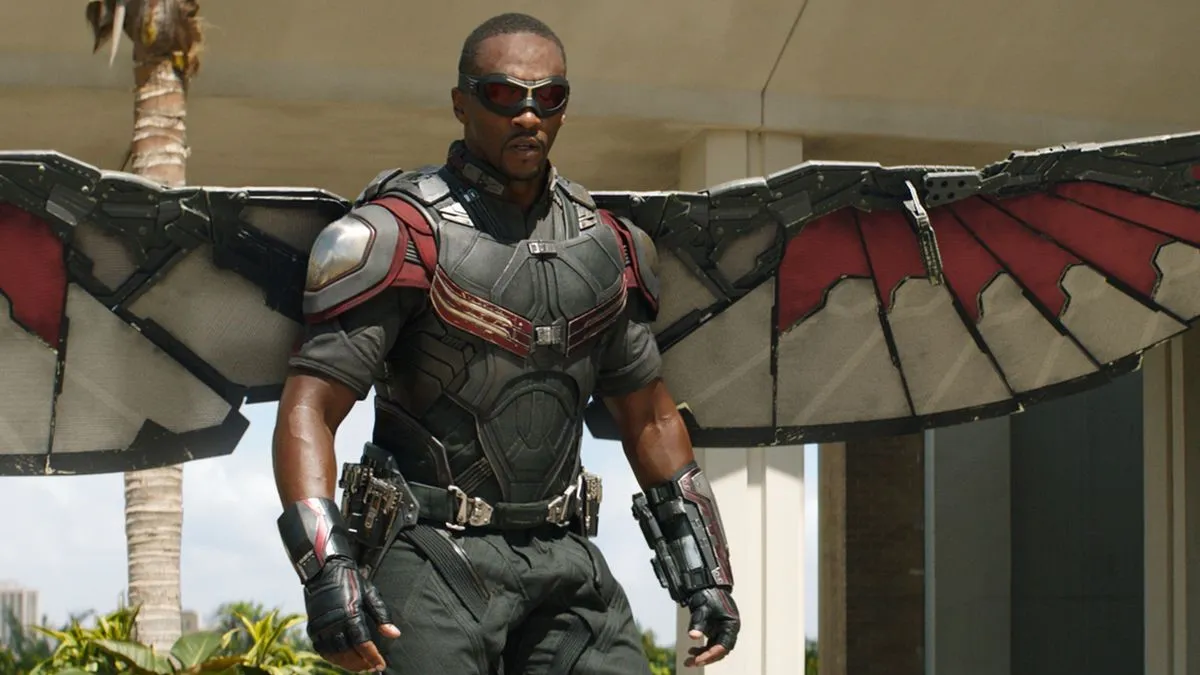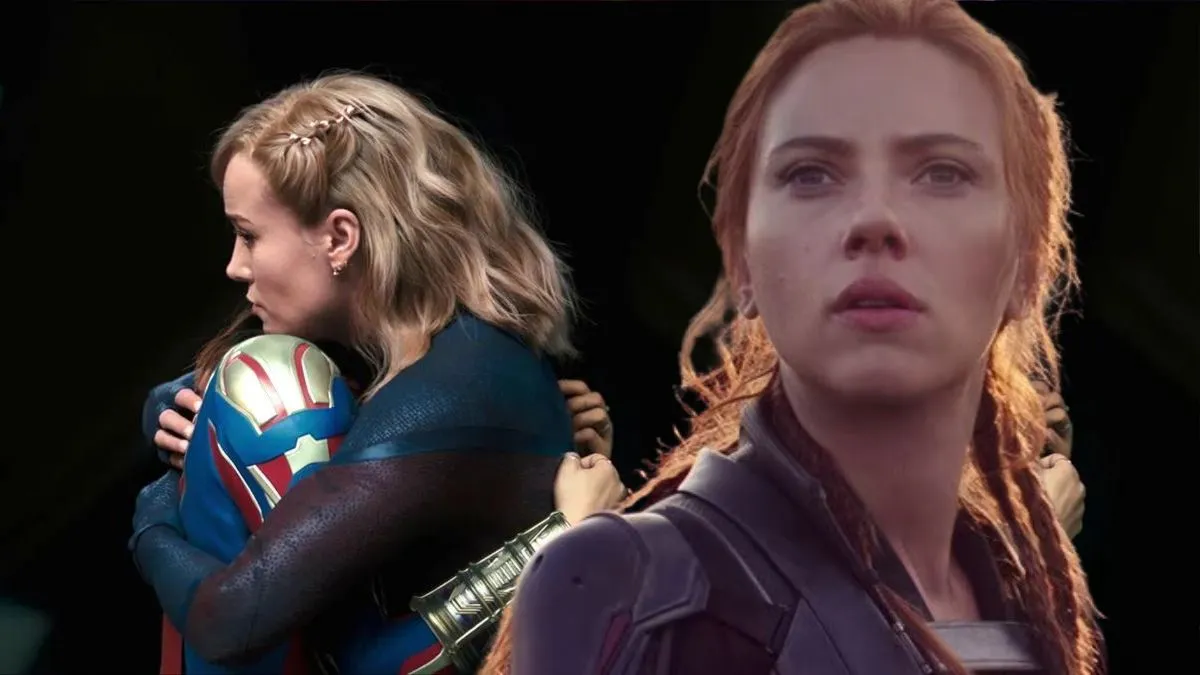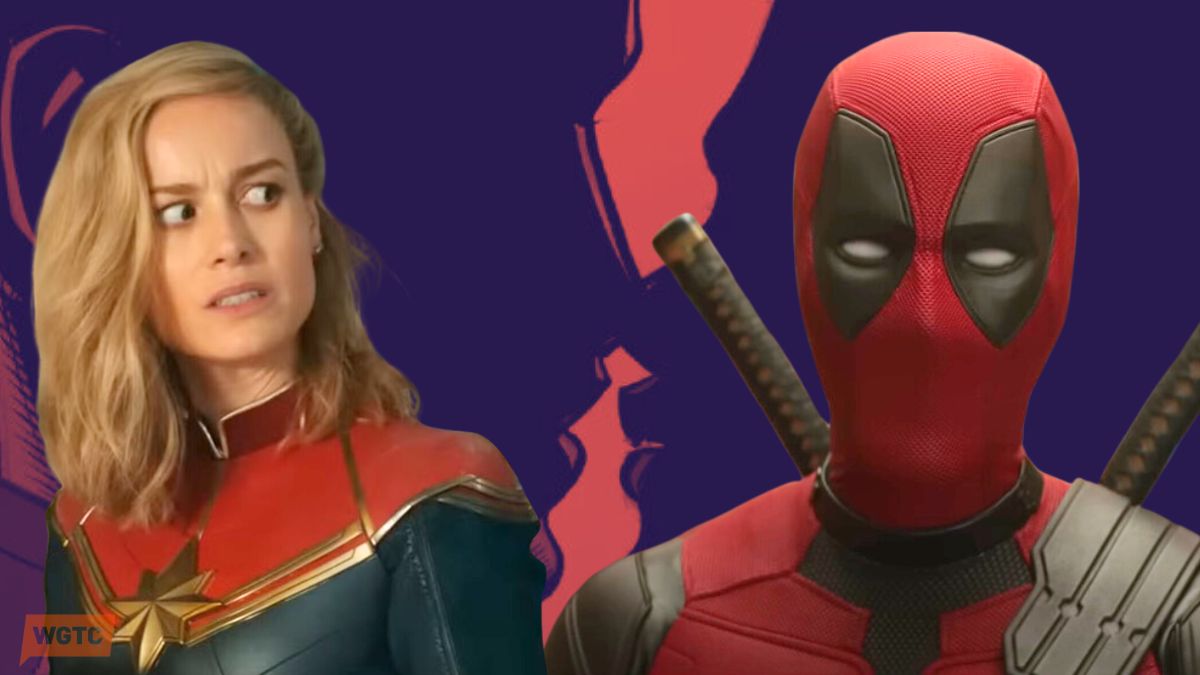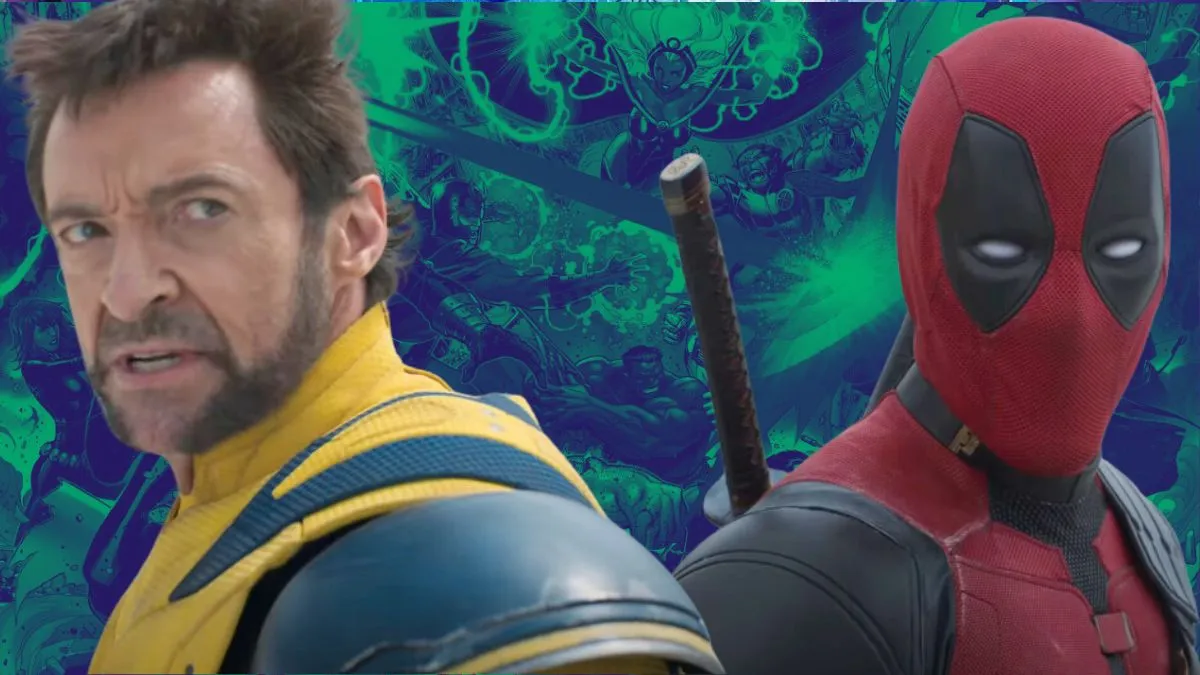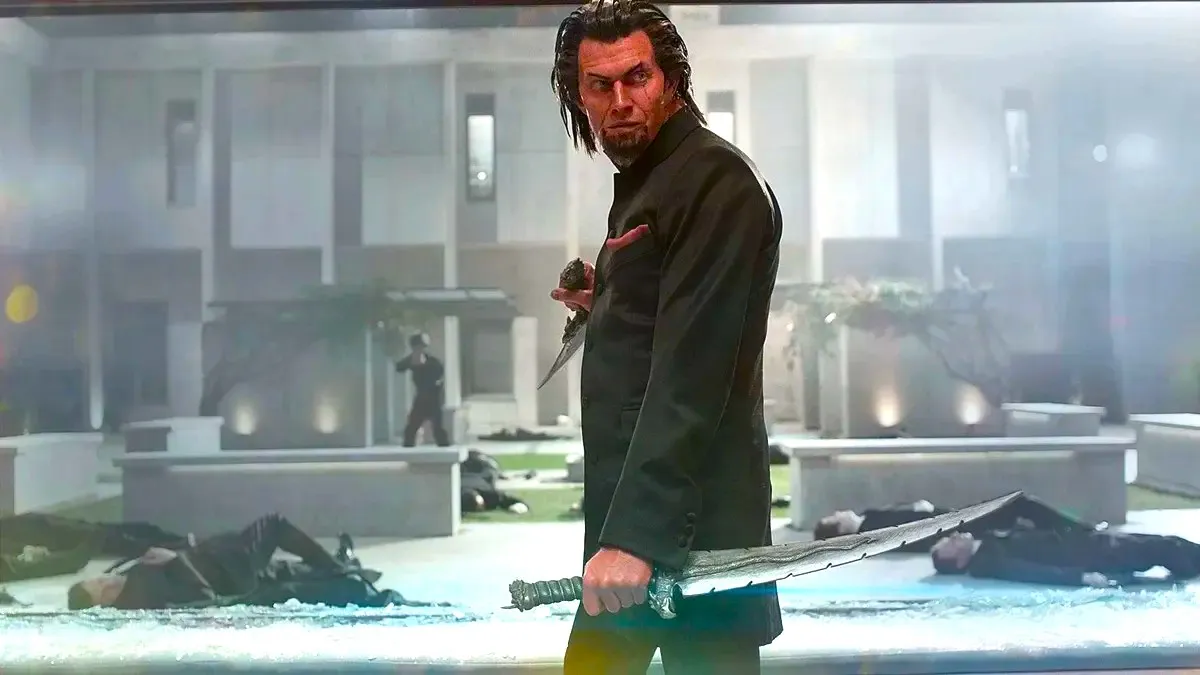Phase four of the MCU has come under fire for some baffling decisions and bad writing, typified by the mess that is the multiverse. And one of the most obvious ways this confusion has come to fruition is through the character of Gamora, who technically died in Avengers: Infinity War, yet is in Guardians of the Galaxy Vol. 3, which supposedly takes place after the events of Infinity War. So is she really alive in the universe? Is she a hallucination from a heartbroken Star Lord? Or is it something in between? The answer is, like most of the newest MCU phase, complicated and a bit nonsensical, so let’s get into it.
Who is Gamora?
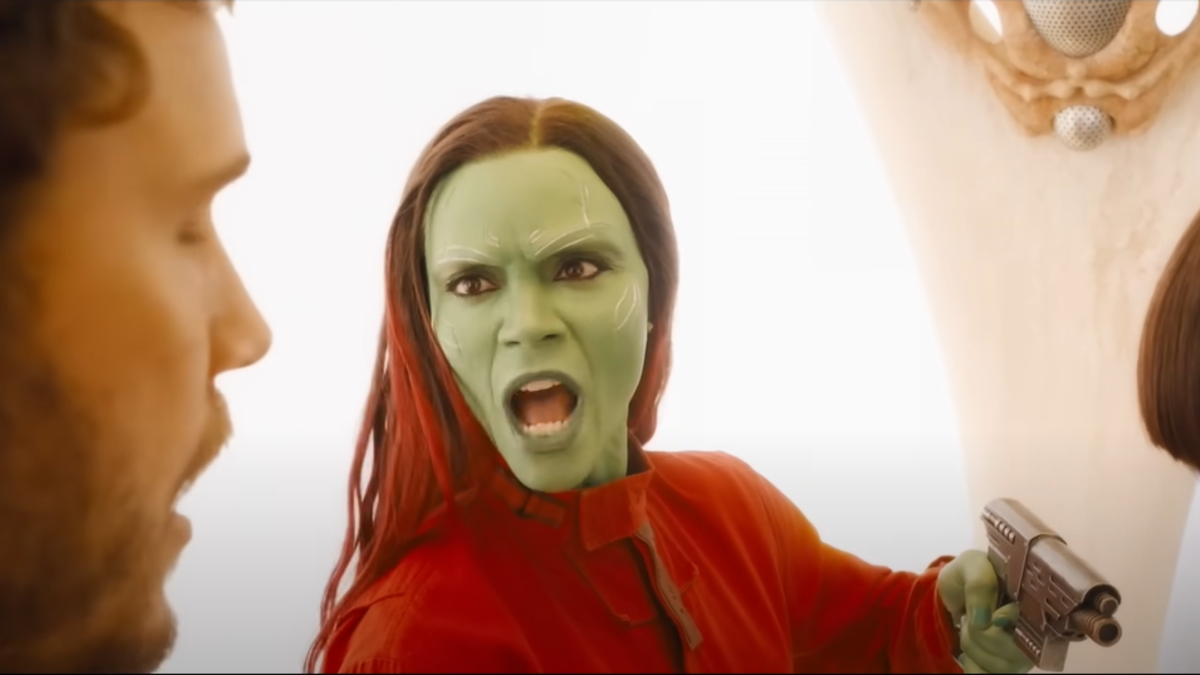
We may as well start right at the very beginning: just who is Gamora? The character first appeared in 1975, and is Thanos’ adopted daughter, as well as being the last of her species. She’s incredibly strong and agile, and has the ability to heal herself quickly. Her combat skills are also second to none, and she can beat most people in the galaxy. She was trained as an assassin alongside her sister Nebula, whom she was pitted in fights against by Thanos. She always won those battles, displaying her superiority over her sibling. In the comics she’s also a member of the Infinity Watch.
In the first Guardians film, Gamora is on the run from her adoptive father after abandoning him and defecting from his forces. She’s trying to steal an Infinity Stone from Star-Lord so she can sell it and lead the rest of her life in private, but due to Groot and Rocket she ends up being captured by the Nova Corps, the law enforcement service on the planet Xandar. She’s sent to the Kyln, a famous space prison, where she ends up with Peter, Rocket, and Groot. While there, she is threatened by Drax the Destroyer, a character whose family was murdered by Ronan while he was under the command of Thanos. Although he comes close to killing her, Drax decides to spare her life when Star-Lord points out Gamora’s presence will bring Ronan to them, so Drax can get his revenge.
Who plays Gamora in the MCU?
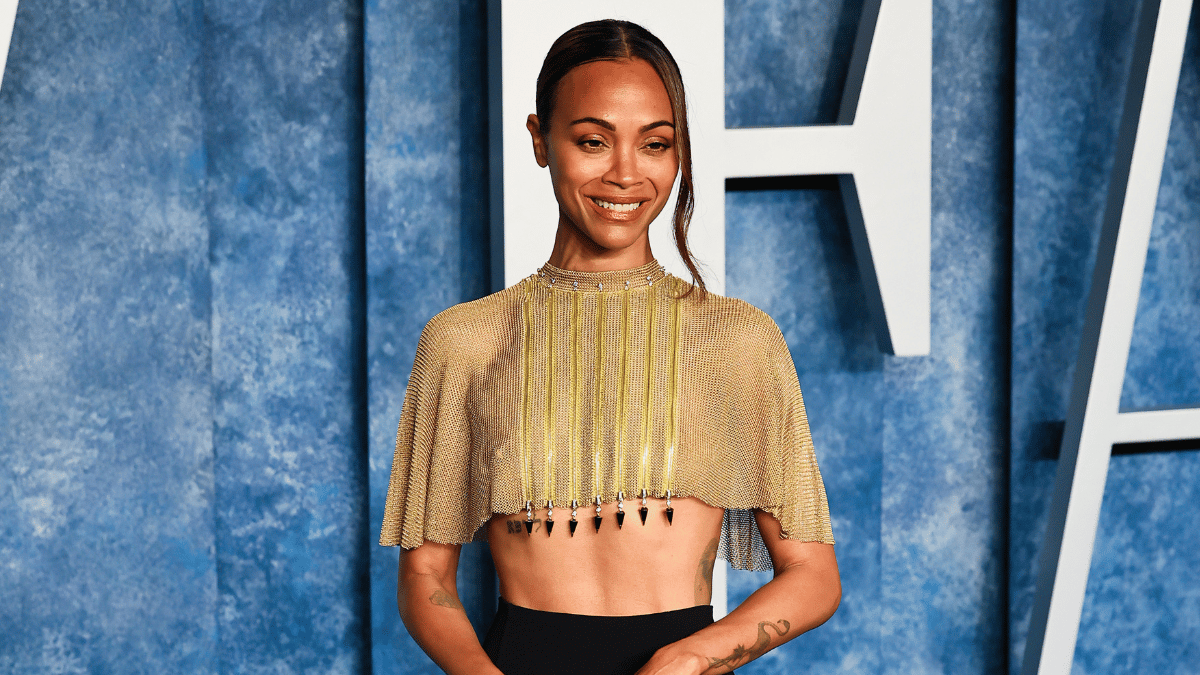
Gamora is played by Zoe Saldaña, who has the unique title of appearing in the three biggest grossing films of all time (Avengers: Endgame, Avatar, and Avatar: Way of the Water. Although the American actress began her career on television, she’s known for multiple sci-fi roles beyond the Avatar franchise and MCU, having also played a part in Star Trek. She started her acting career in 1999, and is also a trained dancer.
Did Gamora die in Avengers: Infinity War?
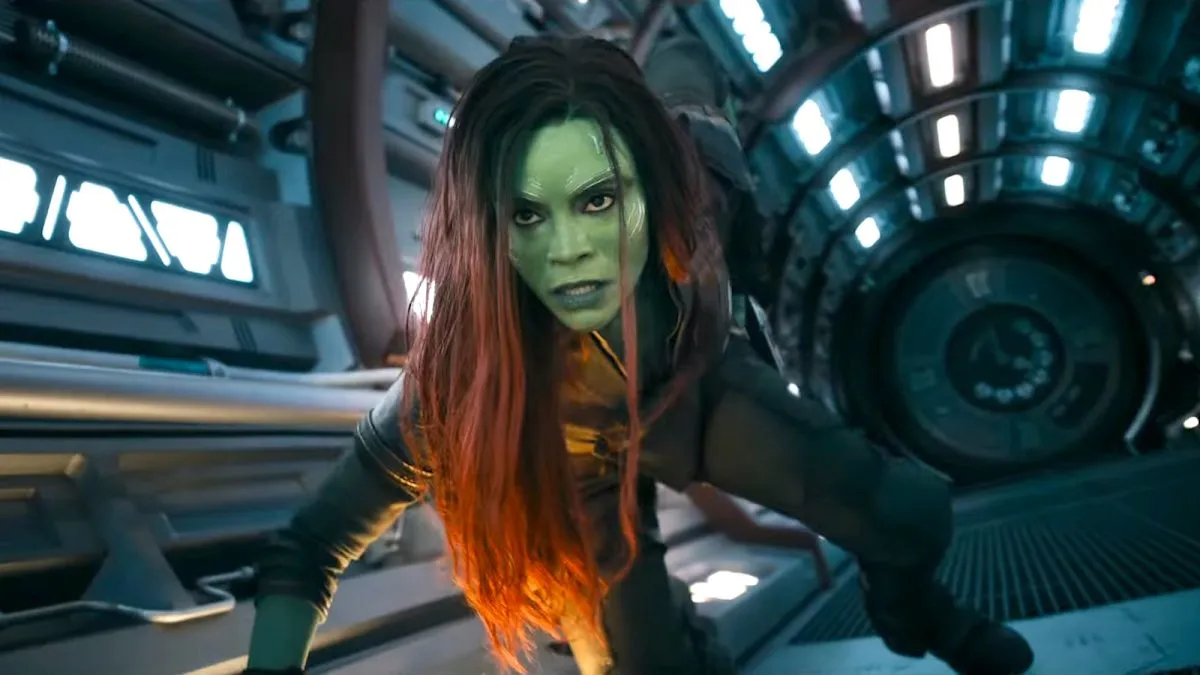
Here’s where it gets confusing: yes, technically Gamora was killed by her adoptive father in Avengers: Infinity War, so for all intents and purposes the character should no longer be on our screens. But, as Marvel fans know, sometimes logic has to fly out of the window.
In the film, Thanos kidnapped Gamora and transported her to the home of the Soul Stone, Vormir. The Stone needs the sacrifice of a loved one for someone to wield it, and even though Thanos clearly has his issues, he seems to have loved Gamora, because once he throws her to her death he’s able to gain control of it. As not even the Infinity Stones can take back a sacrifice for the Soul Stone, she wasn’t able to come back to life with the others who had been killed by Thanos’s snap.
So, how is Gamora alive again in Guardians of the Galaxy Vol. 3?
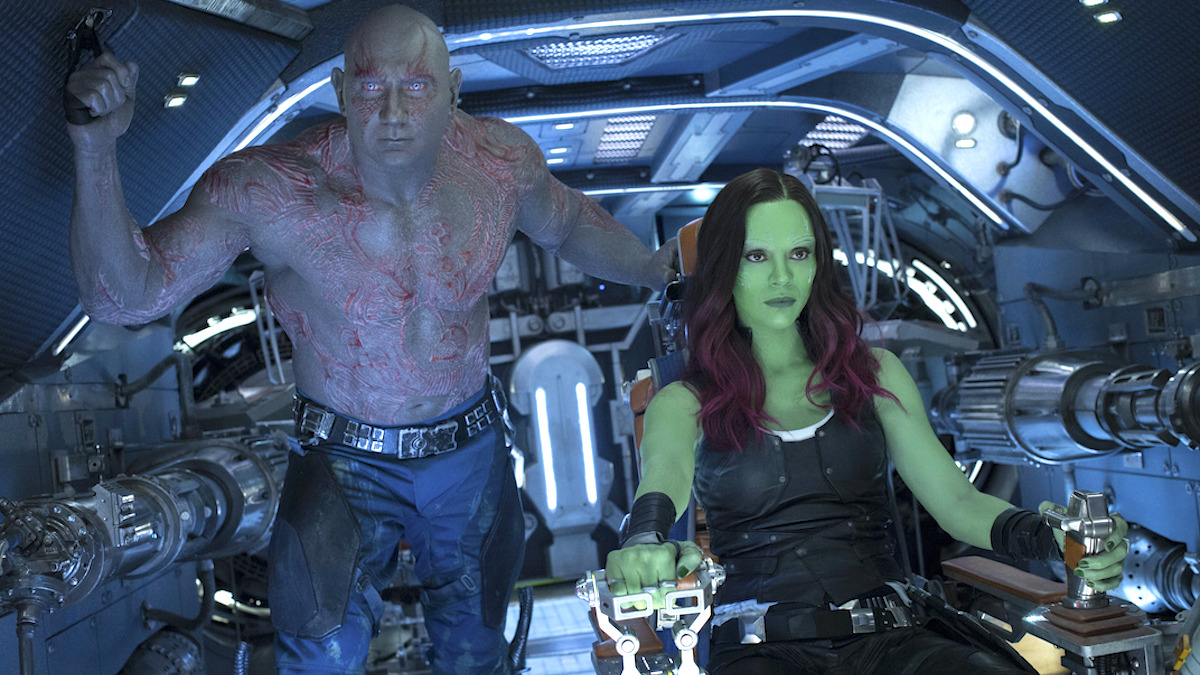
Thanks to the bizarre way that time travel operates in the MCU, Gamora has returned to the screen for the third and final installment of the Guardians franchise, kind of. It all starts with the way the Avengers tried to collect the entire set of Infinity Stones from the past. Nebula and War Machine, afraid of seeing the Power Stone falling into the hands of the Guardians, Kree, or Thanos, traveled back in time to intercept the Stone. Although this is technically time travel, it doesn’t really work on a timeline type scale, instead operating more like heading into an alternate reality. So, more Donnie Darko than Looper.
When the Avengers headed into the past to take control of the Power Stone they were discovered by an old version of Thanos, and the attempted theft of the Stone led to an alternate universe being created where, decades before it happened, Thanos became aware there was a timeline where he managed to gather all of the Infinity Stones and snap half the universe away. This in turn caused the Avengers to also travel back in time to collect the Stones so they could perform their own snap in their present. So far, so confusing, right? But it gets even more convoluted.
After Nebula (of our main timeline, anyway) was kidnapped, the alternate Thanos stole the Avengers’ time travelling technology and followed them back to the present, which means he was deposited in their universe so he could once again steal the Stones, and fulfil what he considered to be his destiny. However, this time he didn’t just plan to destroy half of all life in the universe, but perform a more intense snap so he could destroy all life, and reshape it in a way that he felt was better. To help him with his cause, he brought his incredibly powerful adopted daughters into the present, the alternate Gamora and an alternate Nebula. This is how we get Gamora back into our MCU timeline, albeit not the one who grew to love Peter Quill and her time with the Guardians.
While the final battle between the Avengers and alternate Thanos and his Chitauri armies was raging, the main timeline Nebula killed her alternate self, before convincing alternate Gamora to switch sides and fight for the good guys. It wasn’t the easiest task, but was made simpler by the fact that alternate Gamora, much like her real timeline self, was very close to defecting from her adoptive father at that point in her life. This is one of the many similarities between the two Gamora’s, although their differences are just as pronounced (especially with regards to her feelings towards other members of the Guardians team).
So, when Tony Stark sacrificed himself at the end of Infinity War so that all of Thanos’ forces would be snapped away, the new Gamora stayed in our timeline, leading to the situation we have now. While she looks identical to the original character from the first films, the problem is she doesn’t share any of our timeline Gamora’s memories, so she doesn’t recall the great adventures she had with the Guardians, nor the fact that she fell in love with Star-Lord (Chris Pratt). As a result, she decided against joining the Guardians and instead decided to make her own way in this new world. As noted in Thor: Love & Thunder, this left Star-Lord (and the Guardians in general) floundering and unhappy. In fact, the new Guardians film begins with Peter Quill trying to get over the heartbreak, while also attempting to separate the new, spikier Gamora from the person he knew and loved.
There’s also a real world answer to the question of why Gamora is still technically alive in the MCU. Saldaña is a huge star and under contract as Gamora, and has become a vital part of the Guardians franchise. The writers and producers simply had to find a way to fit her back into the fold, because otherwise they’d be losing a beloved character and all that entails. For now, though, if you’re confused about her status, it’s best to just sit back and not think too much about it.

